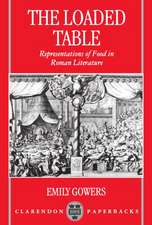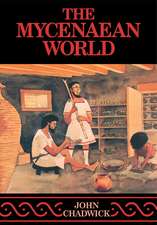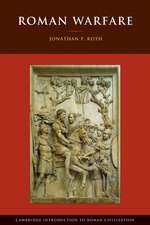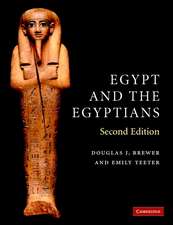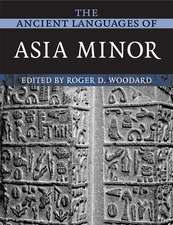Citizenship in Classical Athens
Autor Josine Bloken Limba Engleză Hardback – 9 mar 2017
| Toate formatele și edițiile | Preț | Express |
|---|---|---|
| Paperback (1) | 288.42 lei 6-8 săpt. | |
| Cambridge University Press – 11 dec 2019 | 288.42 lei 6-8 săpt. | |
| Hardback (1) | 698.16 lei 6-8 săpt. | |
| Cambridge University Press – 9 mar 2017 | 698.16 lei 6-8 săpt. |
Preț: 698.16 lei
Preț vechi: 784.44 lei
-11% Nou
Puncte Express: 1047
Preț estimativ în valută:
133.63€ • 145.21$ • 112.33£
133.63€ • 145.21$ • 112.33£
Carte tipărită la comandă
Livrare economică 21 aprilie-05 mai
Preluare comenzi: 021 569.72.76
Specificații
ISBN-13: 9780521191456
ISBN-10: 0521191459
Pagini: 345
Dimensiuni: 160 x 235 x 23 mm
Greutate: 0.63 kg
Editura: Cambridge University Press
Colecția Cambridge University Press
Locul publicării:Cambridge, United Kingdom
ISBN-10: 0521191459
Pagini: 345
Dimensiuni: 160 x 235 x 23 mm
Greutate: 0.63 kg
Editura: Cambridge University Press
Colecția Cambridge University Press
Locul publicării:Cambridge, United Kingdom
Cuprins
1. Rethinking Athenian citizenship; 2. A bond between polis and gods; 3. The value of descent; 4. Citizens, male and female: vocabulary; 5. Participation: public roles and institutions; 6. Outlook: Athenians and others.
Notă biografică
Descriere
This book argues that citizenship in Athens was primarily a religious identity, shared by male and female citizens alike.




